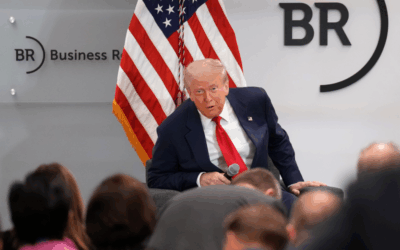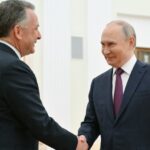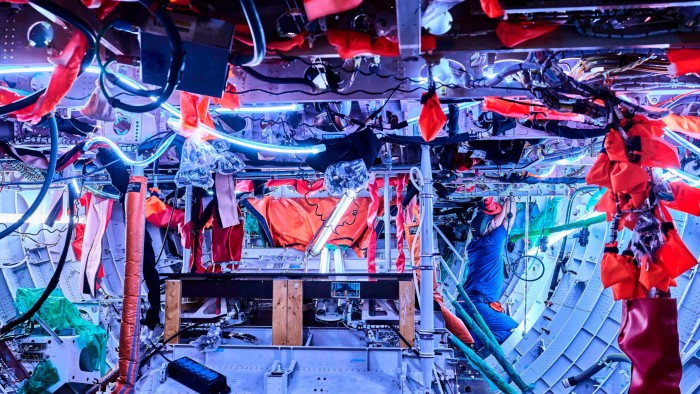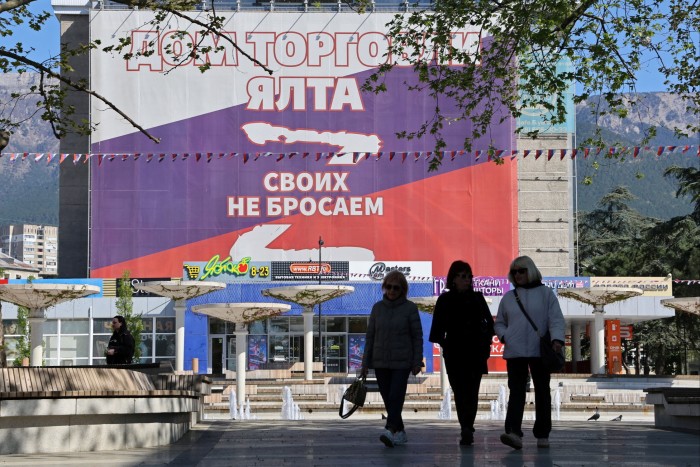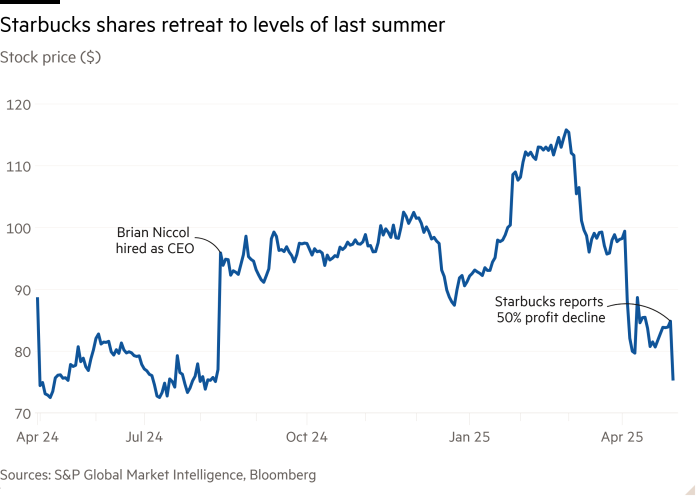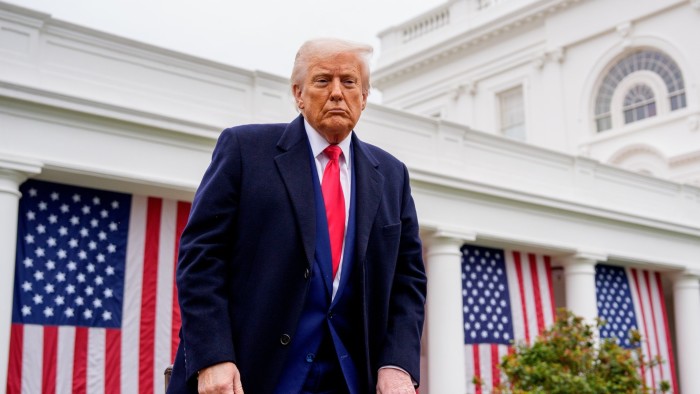US-Ukraine minerals deal hits last-minute hurdle
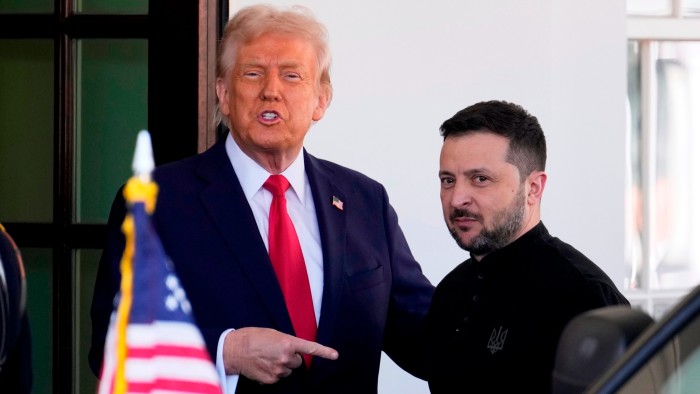
The US and Ukraine ran into last-minute hurdles on Wednesday as they were on the verge of signing a framework minerals deal, when a dispute over what had been agreed in marathon overnight negotiations cast doubt on the deal being finalised.
The deal they had been due to sign, which was seen by the Financial Times, stated that the US and Ukraine, through the development of Kyiv’s natural resources and the creation of a joint investment fund, would “seek to create the conditions necessary to . . . increase investment in mining, energy and related technology in Ukraine”.
It came after Kyiv secured a significant concession from the Trump administration that only future military aid would count as the US contribution to the deal.
Ukraine’s first deputy prime minister, Yulia Svyrydenko, has flown to Washington to sign the deal with US treasury secretary Scott Bessent, said three Ukrainian officials.
But problems arose as Svyrydenko’s plane headed to Washington, and Bessent’s team told her she should “be ready to sign all agreements, or go back home”, said three people familiar with the matter.
The Americans want the Ukrainians to sign both the framework deal and a detailed fund agreement that would complete the full minerals deal on Wednesday, said two Ukrainian officials.
One person familiar with the US’s thinking said on Wednesday that negotiations had not concluded because Ukraine had sought to revisit terms agreed at the weekend.
The person said senior US officials were concerned that this would reduce transparency and accountability, but the deal could still be signed as early as Wednesday if Ukraine returned to the original terms.
“President Trump has said that the time to get this done is now, and we are moving with all deliberate speed towards this end. The United States is committed to the quick conclusion of this vital agreement, and to securing a lasting peace in Ukraine,” a US Treasury spokesperson said.
The Ukrainians said that the US account was inaccurate, and that they could not sign both documents on Wednesday because the fund agreement must be ratified by their country’s parliament before it can be signed.
One Ukrainian official involved in talks expressed frustration with the US, saying they worried that “they won’t be happy with anything”.
“We stand ready to sign the framework deal today,” the official said, but added that the chances were little better than “50-50”.
As the jockeying continued on Wednesday, Ukrainian Prime Minister Denys Shmyhal said on national TV that he hoped the framework deal would be signed within “the next 24 hours”.
“As soon as all the final details are worked out, which I hope will happen within the next 24 hours, the agreement will be signed and we will take the first step,” he said.
While the framework deal does not explicitly offer US security guarantees for Ukraine, it does call the agreement “an expression of a broader, long-term strategic alignment . . . and a tangible demonstration of the United States of America’s support for Ukraine’s security, prosperity, reconstruction and integration into global economic frameworks”.
“We think that the teams have done good work and the deal is much better for both countries,” said one of the Ukrainian officials familiar with the matter.
The development would mark a major step forward in the rocky relationship between Washington and Kyiv after a signing ceremony for an earlier version of the deal was cancelled in February following a public argument in the Oval Office between US President Donald Trump and his Ukrainian counterpart Volodymyr Zelenskyy.
After that clash, Trump had insisted that billions of dollars in past US military assistance be treated as loans to be repaid through the agreement, a proposal Zelenskyy rejected. Trump’s team of negotiators also sent a new proposal stating that only past military aid to Kyiv would count as the US contribution to the deal.
On Sunday, Shmyhal confirmed that this line had been removed after Ukraine had clearly defined its “red lines”.
He spoke from Washington following an “important meeting” with Bessent to hammer out the final details.
In the weeks since the Oval Office meeting that derailed talks — and after Kyiv worked with a US law firm to aid in negotiations with the Trump administration — the talks became more “constructive”, said the Ukrainian officials.
Kyiv and Washington signed a memorandum of intent earlier this month, pledging to advance an agreement on the investment fund part of the deal covering Ukraine’s natural resources and energy assets.
The deal specifies that after it takes effect, any new US military assistance “including the donation of weapons systems, ammunition, technology or training” will be considered a capital contribution by the US.
Trump has expressed growing impatience over stalled ceasefire talks. He has expressed doubts about Russian President Vladimir Putin’s willingness to engage seriously on a peace framework he had hoped to broker within his first 100 days in office.
After meeting Zelenskyy in the Vatican at the weekend, Trump said he “was very disappointed that missiles were [launched] by Russia . . . I want [Putin] to stop shooting, sit down and sign a deal”.

